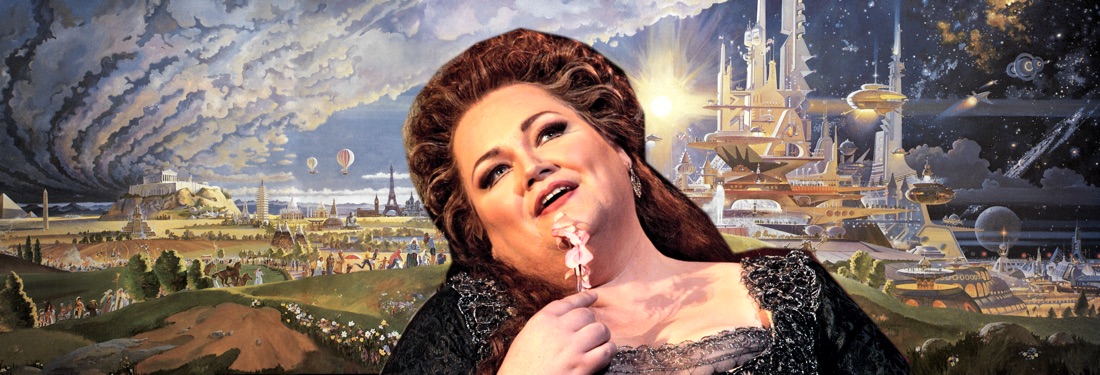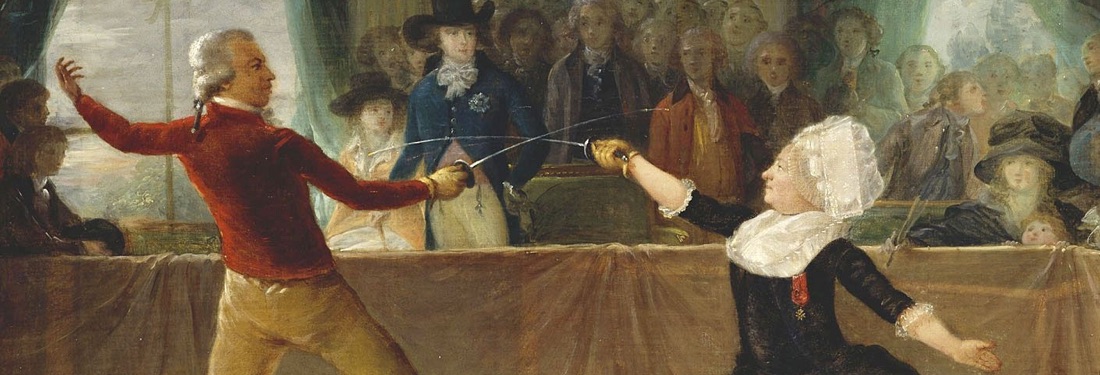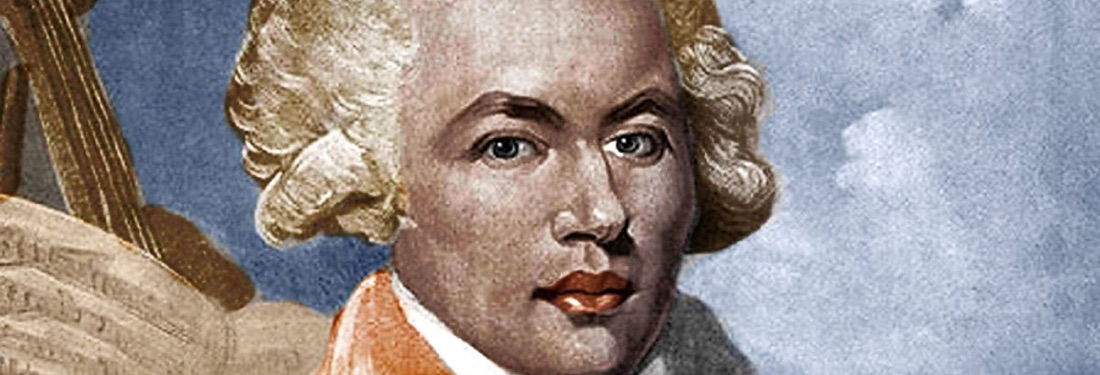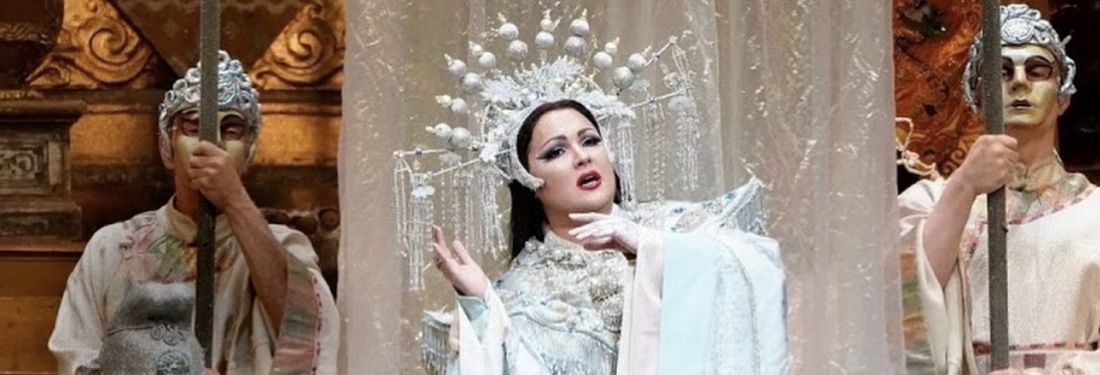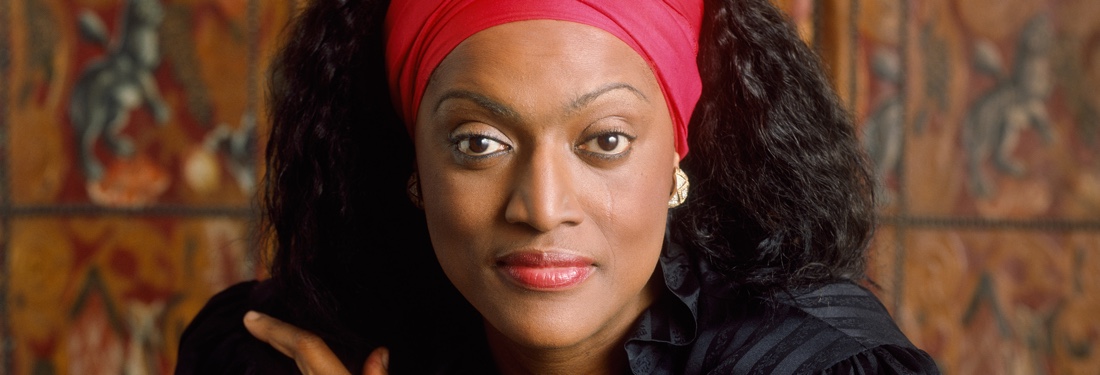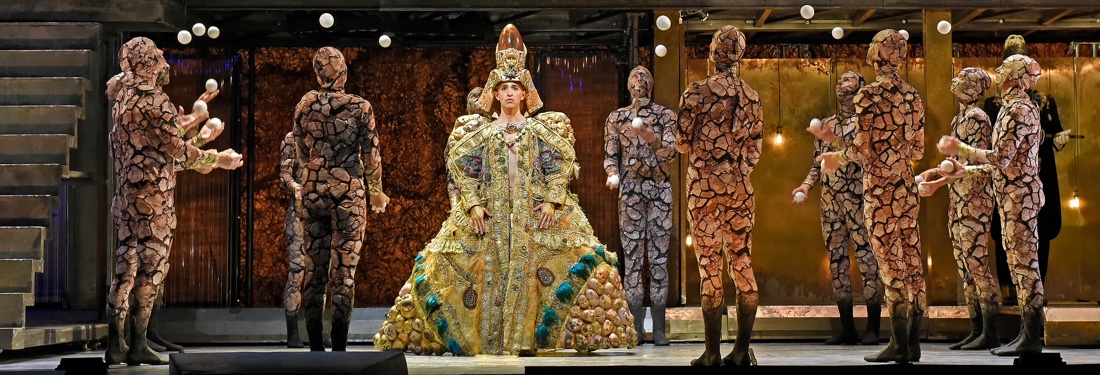
Callum John Blackmore
On Sunday afternoon, husband-and-wife duo Roberto Alagna and Aleksandra Kurzak presented a charming program of operatic favorites from the patio of the Château de la Chèvre d’Or in Èze, France.
Such a sleek, polished finish is a testament to the incredible resources and experience at the Met’s disposal – to coordinate this livestream across two different continents so seamlessly and with such flair is very impressive indeed.
What does the opera singer of the future look like?
Joseph Bologne, Chevalier de Saint George is frequently referred to as “le Mozart noir.” While surely intended as a favorable comparison to Mozart, the sobriquet is diminishing, implying that Bologne’s music was somehow derivative of Mozart’s.
The opera titled L’Amant anonyme (“The Anonymous Lover”) is important because it is one of the earliest known operas by a Black composer that still survives in its entirety.
HERE’s Zoom opera, all decisions will be made by consensus, is not merely an opera written to be performed on a digital platform, but an opera that critiques the platform itself, laying bare all its social and aesthetic limitations.
In operatic pathology, diseases are endowed with preposterous mythological properties: they are both an emblem of desire and the punishment for desire. They are crime, confessional, and executioner all rolled into one.
Not everyone is happy about the Beethoven sestercentennial.
While last year’s finals were dominated by early nineteenth-century bel canto arias, this year’s finalists took on a remarkably broad range of music from a variety of repertoires.
Saturday’s performance of Così fan tutte demonstrated that even the cool, acerbic wit of Mozart’s most controversial comedy can warm our hearts in these icy winter months.
On the day of the Super Bowl, I attended a near-sold-out screening of the Paris Opéra’s recent production of Rameau’s 1735 opéra-ballet Les Indes galantes at New York’s Alliance Française.
Wednesday night’s New York Philharmonic concert was a high-stakes performance for a number of reasons.
It is rare to be moved to tears by a lieder recital. It is rarer still to be moved to tears by the third song on a recital program.
The opera’s radical vision lay in its enormous scale, which encompassed a hundred-strong community chorus taken from the ranks of the Brooklyn Youth Chorus and Master Voices.
At the Metropolitan Opera on Friday night, an otherwise undistinguished Traviata was salvaged by an astonishing performance from Aleksandra Kurzak, whose Violetta was an incontrovertible triumph.
Although the gold glitter cannons detonated at the end of the act were an ostentatious reminder that this was a celebration of the new year, it seemed that the only words on anyone’s lips as the audience filed out of the theater were “Viva Netrebko!”
Yannick Nézet-Séguin and the Metropolitan Opera Orchestra reigned supreme at the opening night of Wozzeck on Friday evening, rendering every snarl and shimmer of Berg’s score with gripping intensity.
If Sunday’s performance of Magic Flute at the Met demonstrated one thing, it is that opera targeted at children must be just as good as (if not better than) opera targeted at adults.
A near-full house attended the Jessye Norman Memorial Celebration at the Met on Sunday afternoon, the auditorium packed with family, friends, colleagues, and fans of the late soprano, who passed away on September 30 of this year.
Saturday afternoon’s performance of Le Nozze di Figaro at the Met was awash with contradictions.
Così fan tutte presents a considerable challenge to the modern director.
Friday evening’s Met premiere of Akhnaten was a resounding triumph and an outstanding testament to Philip Glass’s enduring operatic vision.
It seems a travesty that Philip Glass’s Akhnaten, one of the seminal works of the 20th by one of America’s most iconic composers, is only just receiving its Met premiere in 2019, some 35 years after its first performance!
At Friday night’s performance of La Bohème at the Met, the cast seemed to lean into (and gamble upon) the production’s enduring popularity.






